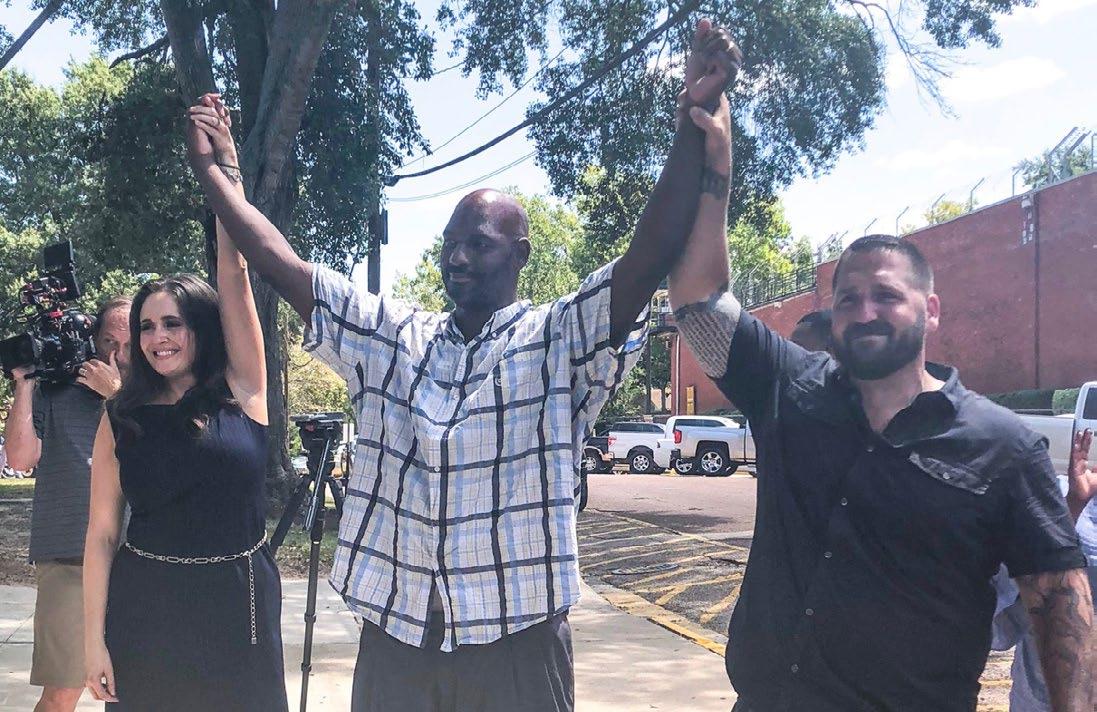
12 minute read
STUDENTS BECOMING LAWYERS
Take one example: Students in the Law School’s Innocence Clinic, working in partnership with the Innocence Project of Texas, get real-world work in postconviction appellate criminal law. They review transcripts, speak with clinic clients, and track down witnesses, evidence, and documents in their cases. Students have collaborated with Conviction Integrity Units in Dallas, El Paso, San Antonio, and Houston and coordinated with experts in a variety of fields when reviewing evidence.
“It’s incredibly rewarding,” reflected Bonnie Serrano, now a judicial clerk for U.S. Magistrate Judge John R. Parker. “It’s a long process, so you pick up where the previous student attorney left off and work hard to move the case further along in the process. It’s amazing to be part of a team working together to prove a client’s innocence.”
This teamwork, along with the guidance of professor and Innocence Clinic director Allison Clayton '07, has paid off for numerous clients of the Clinic.
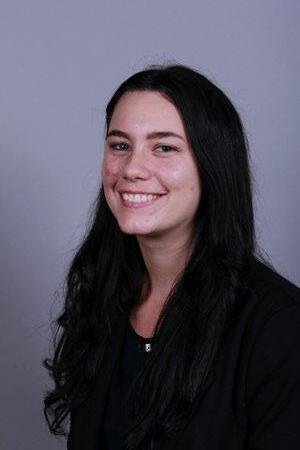
Ed Ates is one such Innocence client, and a documentary featuring his story will be released by Hulu in January. Ed was accused and convicted for the murder of Elnora Griffin and received a 99-year sentence in 1998 despite maintaining his innocence. Over the years, Ed had been eligible for and denied parole several times. His refusal to admit guilt and “accept responsibility” for his crime contributed to the denied parole.
When Ed came up for parole for the fourth time in 2017, the
Innocence Clinic, convinced of his innocence, campaigned for his release without an admission of guilt, a feat virtually unheard of in the parole world. The Clinic enlisted the aid of Roger Nichols '89, a well-respected Texas parole attorney.
Then 3L Janet Moreno '18, who was the student attorney on Ed’s case, along with Professor Clayton, visited Ed in prison and met with Roger to discuss Ed’s case for parole. After the visit, Janet penned a memo to the Parole Board in support of Ed’s release.
Roger and Professor Clayton handdelivered the memo, along with multiple letters of support, to the Parole Board.
Two days later, the Parole Board granted Ed release on parole. He was freed into the waiting arms of his wife and children, who had been by his side over the course of his 20 years of incarceration.
Since his release, Ed has built a new life with his wife and children, trying to make up for lost time.
The Innocence Clinic has continued to fight for Ed’s exoneration. New DNA evidence recently indicated once again that Ed is innocent, and his current student attorney, 3L Sarah Dickie, and Professor Clayton, are continuing to work with the District Attorney’s Office to test previously untested fingerprint evidence.
Not surprisingly, the students regularly find this work to be life-changing, not just for the clients but for themselves. “My experience with the Innocence Clinic was truly unmatched by anything else I did in law school,” Bonnie relates. “It gave my last year at Texas Tech Law a powerful purpose. Getting to help someone with something that’s so impactful in their lives while in law school was such a special experience.”
The Law Faculty Who Make It Happen
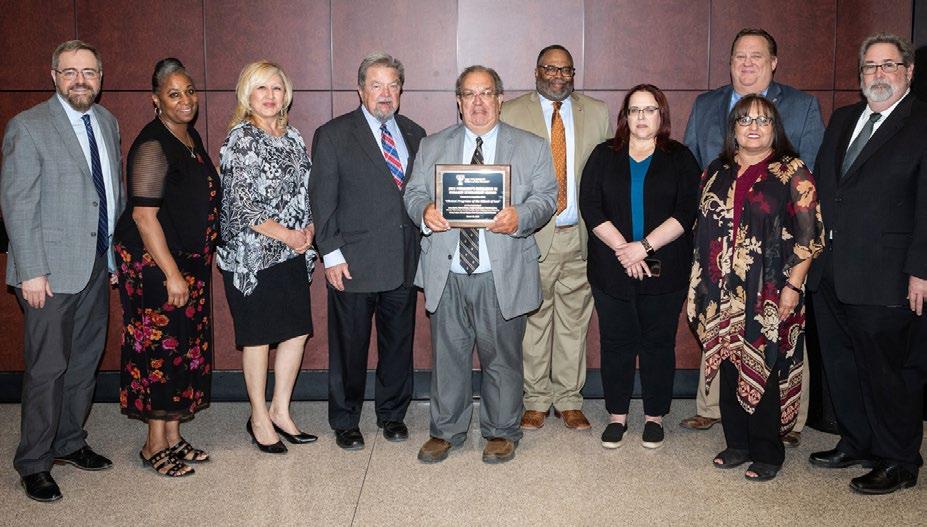
The Law School’s clinical program has grown from modest beginnings two decades ago to a cornerstone of the Law School today. The program now includes eight different clinics which educate students and help low-income clients with everything from tax and housing issues to capital cases and wrongful convictions.
The students work for the clients, but the clinical faculty and staff provide the guidance to make it all happen, melding decades of courtroom and classroom experience to the benefit of the students and clients.
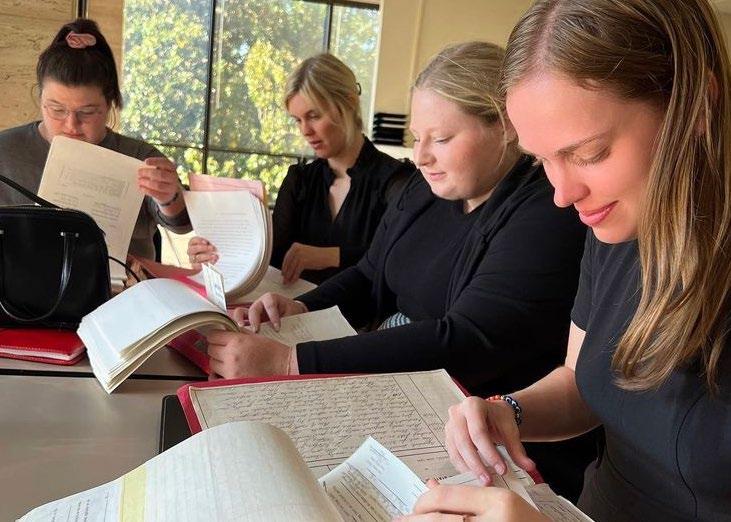
Professor Larry Spain, the director of the Clinical Programs, supervises two clinics—the Civil Practice Clinic and the Advanced Alternative Dispute Resolution Clinic—and coordinates all the other clinics. His influence is felt throughout the clinical programs and is based on his more than twenty years as a clinician at Tech Law and eighteen years before that as the clinical director at University of North Dakota School of Law.
“Clinical education can be a fantastic capstone experience in law school,” said Spain. “There’s no substitute for what you can learn from firsthand work with actual cases and actual clients. Our programs show students what the real practice of law looks like, and they get incredible real-world legal experience for course credit under our expert direction.”
Spain assembled the current clinical team over the years, and the next to join him was Wendy Tolson Ross, the director of the Family Law & Housing Clinic. Ross received her bachelor’s degree from Texas Tech in 1988 before earning a Juris Doctorate at the University of Missouri’s School of Law and returning to the South Plains to work for West Texas Legal Services. She later shifted her focus to legal education—ultimately joining Tech Law in 2005.
Ross is very passionate about her clinical program. “I am so committed to the work we do,” said Ross, “both for our law students, who are learning to be lawyers, and for our clients in the family law clinic, who so need our help. Everyone benefits from our work— students, clients, the entire community.”
Professor Patrick Metze, who arrived a few years after Ross, is the steadying force for the Criminal Clinics and a longtime defense attorney. Metze expanded the Criminal Defense Clinic to include a one-semester Capital Defense Clinic for thirdyear law students in their final semester, but the growth was far from done.
A Texas state task force for indigent defense asked Metze and Spain about the possibility of extending the clinics to rural communities suffering from a lack of legal representation. They agreed to the terms of another grant, and the Caprock Regional Public Defender Office and Clinic was born.
Donnie Yandell, an early clinic graduate in his own right, was brought in as the chief public defender and a clinical instructor in 2011, adding another key piece to the clinical team. Yandell was the perfect fit for the position. A former police officer with rural roots, he helped navigate the issues inherent to defending clients in rural counties.
“We needed Donnie—a boot-wearin’, pickup-drivin’, tobacco-spittin’, former cop criminal defense attorney. When he walks in, he speaks their language. The Caprock Clinic wouldn’t have survived without him.”
Next, Terri Morgeson was brought in to help with the ever-expanding Criminal Clinics, but necessity forced a change of direction.
In 2014, with grant funding for the Low Income Tax Clinic and a new director needed, Morgeson was offered the reins and, with the help of legal aid and staffer Elma Moreno, has successfully guided the program ever since. Along with their students, Morgeson and Moreno have helped their clients recover or save hundreds of thousands of dollars.
And, even though she changed direction from defense attorney to tax attorney, Morgeson never changed her mentality.
“I just like fighting with the government,” Morgeson laughed.
“I think it’s fun. I’ve always been the person who was rooting for the underdog. So, yeah, I like trying to impart that to my students.” As Morgeson made the shift to the LITC, more help was needed for the Criminal Clinics.
Dwight McDonald, another Texas Tech Law graduate, fit the bill for this opening. Metze ran into McDonald at a courthouse by pure chance. A former basketball coach and teacher, McDonald told Metze he was ready to step away from a successful legal career in criminal law and head back to teaching and coaching.
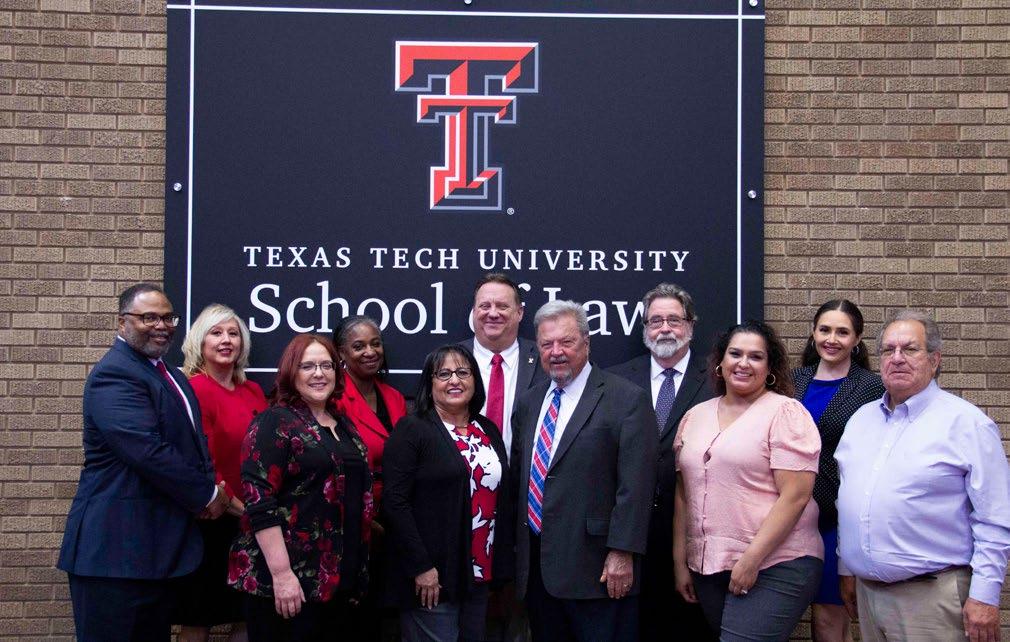
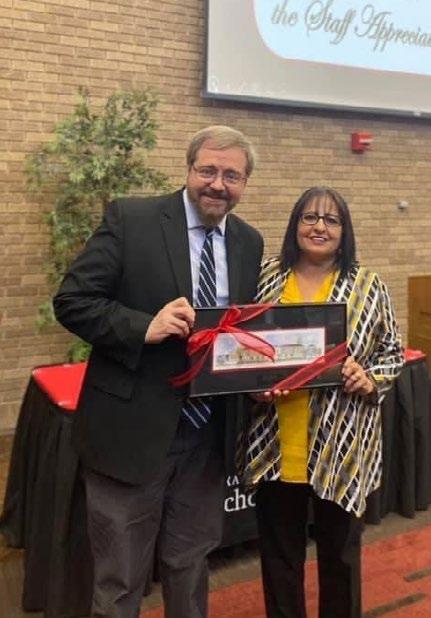
Metze had a better idea.
“When he started talking to me about this position, I really wasn’t interested,” McDonald said. “But then he invited me to come out and explained the programs to me, because we didn’t have clinics when I was at Tech. So, I didn’t really know what that was. They took me to lunch and kind of explained it, and I equated it with the coaching, but now coaching students to be lawyers.”
The final piece of the current puzzle arrived in 2016 when the Innocence
Clinic, previously run as more of an externship program, was brought onto campus, and Allison Clayton was hired as an adjunct professor to lead it.
A 2007 graduate of Texas Tech’s Law School, Clayton had a year-long clerkship with the Second Court of Appeals in Fort Worth, Texas, and has spent most of her career fighting appellate and post-conviction cases.
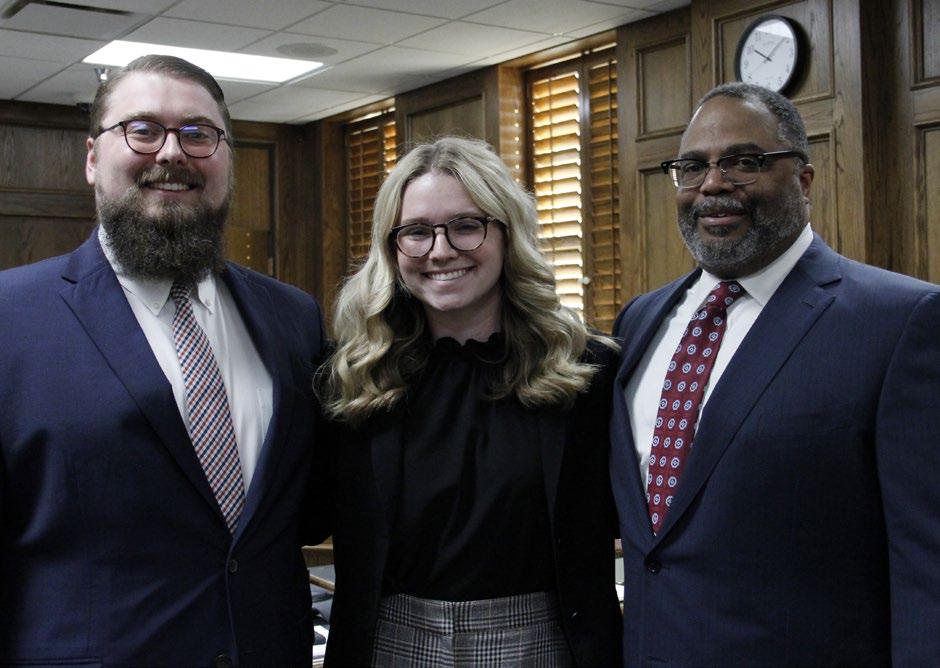
“Allison was the perfect choice for this,” Metze said. “She was the perfect choice because that’s what she does. That’s her.”
Letting The Students Do The Work
A common occurrence in clinical programs is to have students work closely with adjunct professors, primarily to watch the professors’ work, observe them, and learn the ropes by proxy. That’s not how it works at Texas Tech.
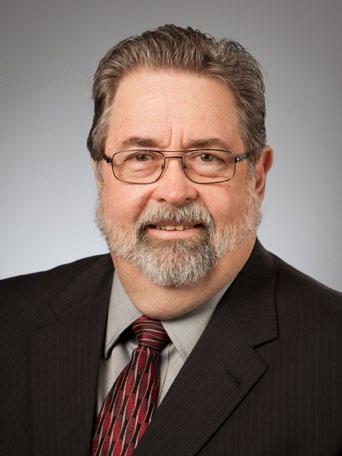
“Larry taught me this idea,” Metze said. “It’s not my job to do the work; it’s my job to supervise the students here in their work. So, we teach them by letting them do the work.
“We equate it to learning how to swim. When you’re a kid learning how to swim, they tell you to get to the edge, and they push you in the pool. That’s what we do to our students, except they have a client tied around their legs.” on their own. But as they get more experienced, it gets really fun the second semester, because they know what they’re doing. They’re doing their own work and not depending on us to tell them as much.
It’s not my job to do the work; it’s my job to supervise the students here in their work. So, we teach them by letting them do the work.
As Yandell explains, the process can be frustrating, but when the light-switch flips, and the students figure it out, that’s when the fun begins.
“The first couple months, you want to pull your hair out,” he said. “They’re asking things they can figure out easily
“It becomes more of a colleague relationship, at least in my experience. They come in, and they talk to you about their case like I would talk to Metze or Dwight or Allison or Larry.”
That shift in understanding and relationship, when the students begin to come to terms with the work they’re doing, is really what the Clinical Programs are all about.
“It’s ownership of the cases,” Ross said. “That’s what takes them from being students to practicing as an attorney.”
“The students really start to understand the counselor element of it,” Clayton explained. “The Innocence Clinic students, like everyone’s students, have a one-on-one interaction with the instructor, but also with the client. If the client is calling, they’re not calling me, they’re not writing to me. They’re writing to the students, and they know the student’s name. So, the student knows if they mess up, they’re going to have to explain why they messed up.
“It raises them up to know they’re on the hook for this. Of course, we’re not going to let them fail, but it brings everybody up, and it just makes our students really, really good counselors.”
“Getting the chance to talk to real people, about real problems, is such an eye-opening opportunity,” said student Cameron Morris. “And on top of that, you get to find solutions for your client. It’s so rewarding to know that you’ve given your client the tools they need to move forward in their lives and succeed.”
The connection the students make with their clients is often impressive, and that connection helps build a strong work ethic and broader commitment to law practice. After all, when you make a connection with a client, and that person’s freedom, life, or money are in your hands, working hard for them becomes second nature.
“I get emails on the weekends. I get calls and text messages on the weekends. They live and breathe it. It’s amazing they put that much effort into it.”
A Lasting Impact On The Community And On Students
From the very beginning, Texas Tech University was built to fill a need for an underserved community, and that tradition is something Red Raiders cling to.
You would be hard-pressed to find a program on campus making a bigger impact than the clinics at the Law School.
“We have students who just don’t want to quit working,” Yandell notes. “Sometimes we have to stop them, tell them to put the case down and go study for their finals, but they care so much and are so invested, it’s hard to get them to drop the work.
Since its inception, the LITC has recovered or saved more than $1.5 million for low-income taxpayers. The Family Law & Housing Clinic helps settle divorces, adoptions, custody cases, and landlord-tenant disputes. The Civil Practice Clinic is nearing $1 million in retroactive benefits. The ADR Clinic offers hundreds of hours of mediation to the community each year. The Criminal Clinics all offer aid to indigent clients— hundreds per year—and their success rate is outstanding. And the Innocence Clinic recently had another case recommended for exoneration.
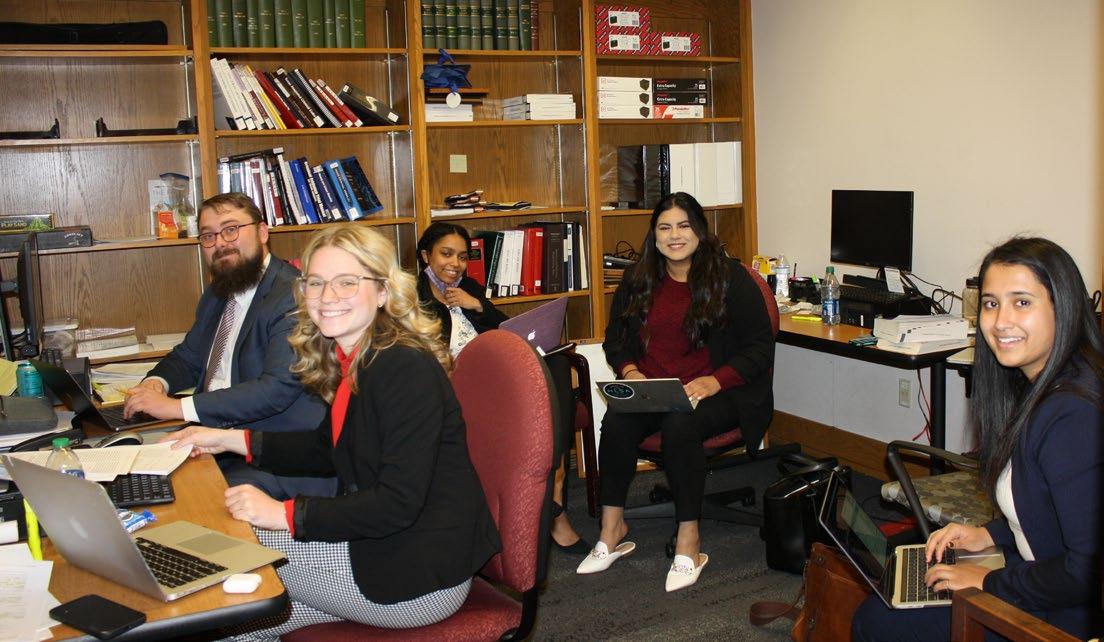
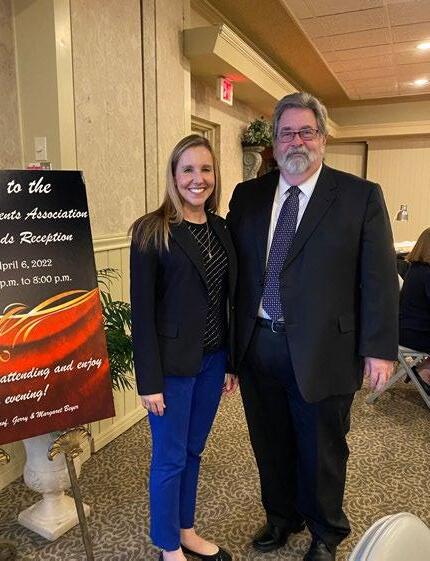
In total, the Clinical Programs offer around 18,000 hours of legal aid to the community annually.
That, in and of itself, is impressive. But if you dig a bit, you quickly find out that this team and the impact they’re making extends well beyond the Caprock.
One wall of Metze’s office tells a piece of the story. A collage of pictures, all former Criminal Clinic Students, shows the relationships that are developed here.
Along with the good humor and easy confidence of this group of instructors, it would be hard to miss the sense of pride they feel for the students who have completed the programs and for the way they operate, even if their methods aren’t always conventional.
The students’ attachment to the clinics doesn’t end when students graduate, either. Professors regularly get calls, emails, and text messages from former students checking in on cases they worked on but weren’t able to finish.
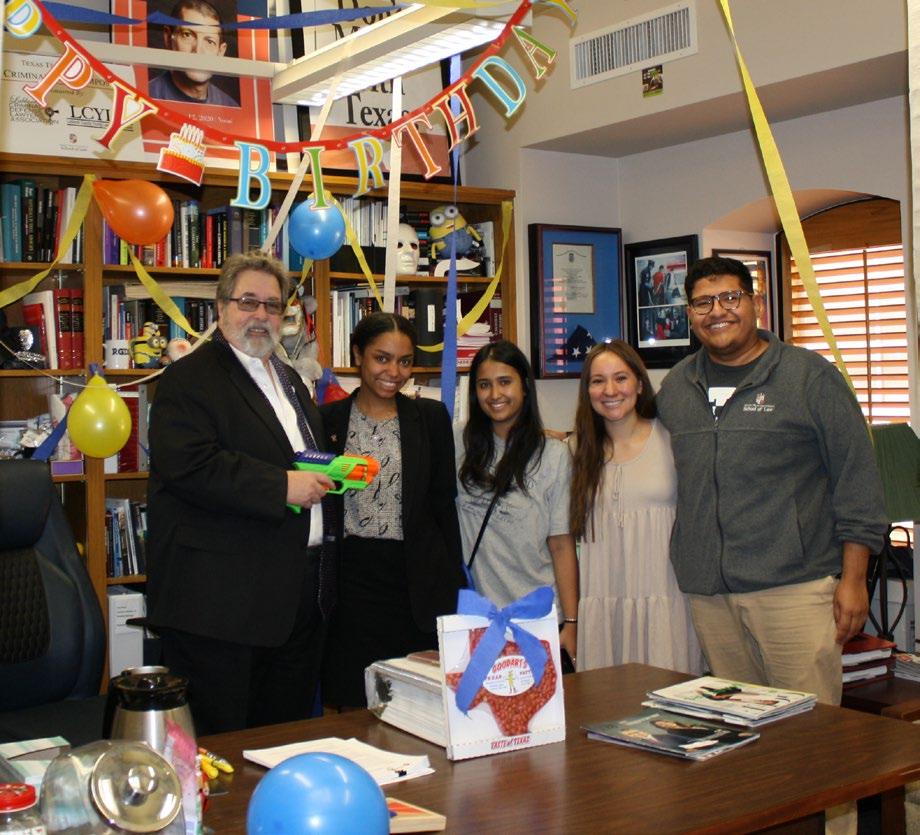
“I had a conversation with a former student yesterday about one of their former clients who had been rearrested,” McDonald explained. “The students get invested with their clients over time because they want good outcomes for them. I have to explain to them, ‘If our clients thought like us, they wouldn’t be our clients. You have to meet them where they are and then go forward from there.’ And I think once they get over that barrier, it becomes very easy for the students to get invested in the outcome for their clients.
“We only represent poor people,”
McDonald said. “A lot of our students have never been poor, and they don’t understand what it’s like. But once they get over that hurdle, then they start to make real progress, in my opinion. You want them to carry that beyond this law school, and that’s why you have people who are responding years later because they are invested in what’s going on with their clients. And hopefully, that manifests itself in them actually doing something in their practice to help those who are less fortunate.”
To highlight just how deep the bond runs, Metze turns to a recent email from a former student now working as a public defender in Austin.
“I want to check in to let you know how things are going,” Alicia Mpande, a recent graduate, writes. “I’ve been an official public defender for a month, and I’ve loved every minute of it. I can’t stress enough how being in your clinic prepared me for this experience. Despite only being a lawyer for a month into my career, it’s so clear to me how lucky I was to have gotten to work with you. Every day I think of something you taught us to help us in representing our clients.”
PRACTICE-READY LAWYERS
The Law School is well known for producing practice-ready lawyers who give generously to the profession and their communities. This reputation is built on hard-working students and the law faculty’s focus on developing real-world practical skills.
My clinical experience was nothing short of incredible. I came to Texas Tech because of this clinical program, and I am so glad that I did. It gave me great confidence as I prepared to begin my career as a public defender. I am incredibly grateful for everything that I have learned in this program.
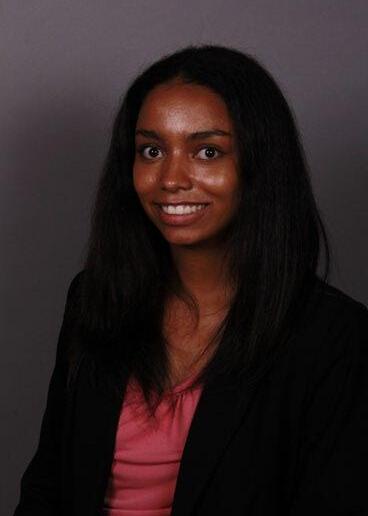
- Alicia Mpande
The Clinical Programs represent an outstanding opportunity for students to develop and perfect those skills.
3L Cameron Morris sums it up this way. “I got a glimpse of the day-to-day life of a lawyer. I learned how to come to the table and advocate for my client—how to listen to what’s important to them and fight to get them the best result.”
Alicia Mpande agrees. “My clinical experience was nothing short of incredible. I came to Texas Tech because of this clinical program, and I am so glad that I did. It gave me great confidence as I prepared to begin my career as a public defender. I am incredibly grateful for everything that I have learned in this program.”
This is a common theme among former clinical students. They view this educational experience as their most meaningful during Law School—giving them powerful insights into the vital role a lawyer plays in the lives of their clients and the confidence to hit the ground running as a brand-new lawyer for the clients they serve.
IMPACT OF THE 2021-2022 CLINICS IN NUMBERS
66 448 295 students participated in a clinic. total cases opened. total cases closed. resolution rate on cases handled by the Advanced Alternative Dispute Resolution Clinic. in corrected tax liabilities were saved for taxpayers by the Low Income Taxpayer Clinic. documentaries featuring Innocence Clinic cases are at various stages of production by Hulu and Netflix.
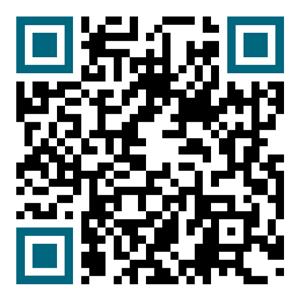
Over miles were traveled by Caprock Regional Public Defender students to meet with incarcerated clients and make court appearances.
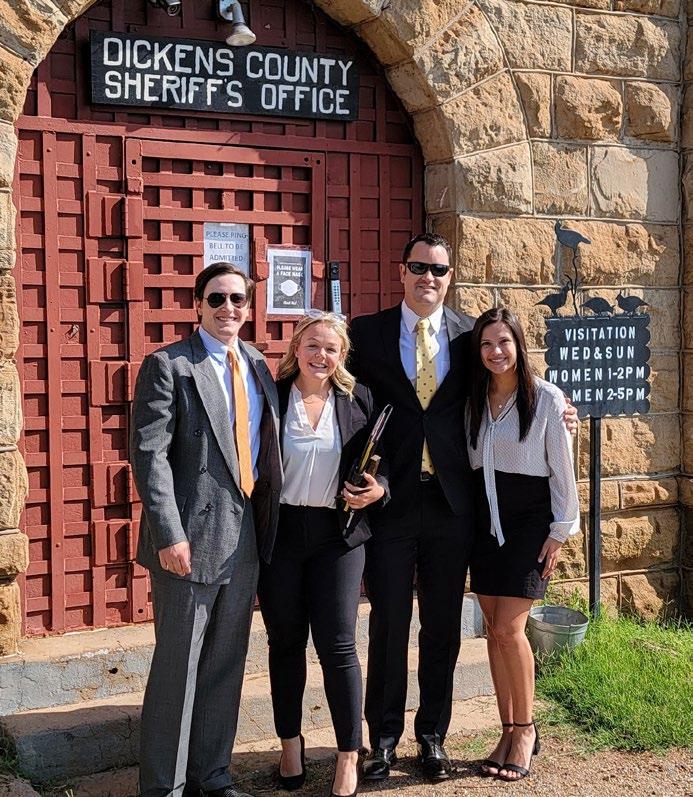
9,100 57% 100% 3 $266,356 of the Criminal Defense Clinic students had a job at graduation.







